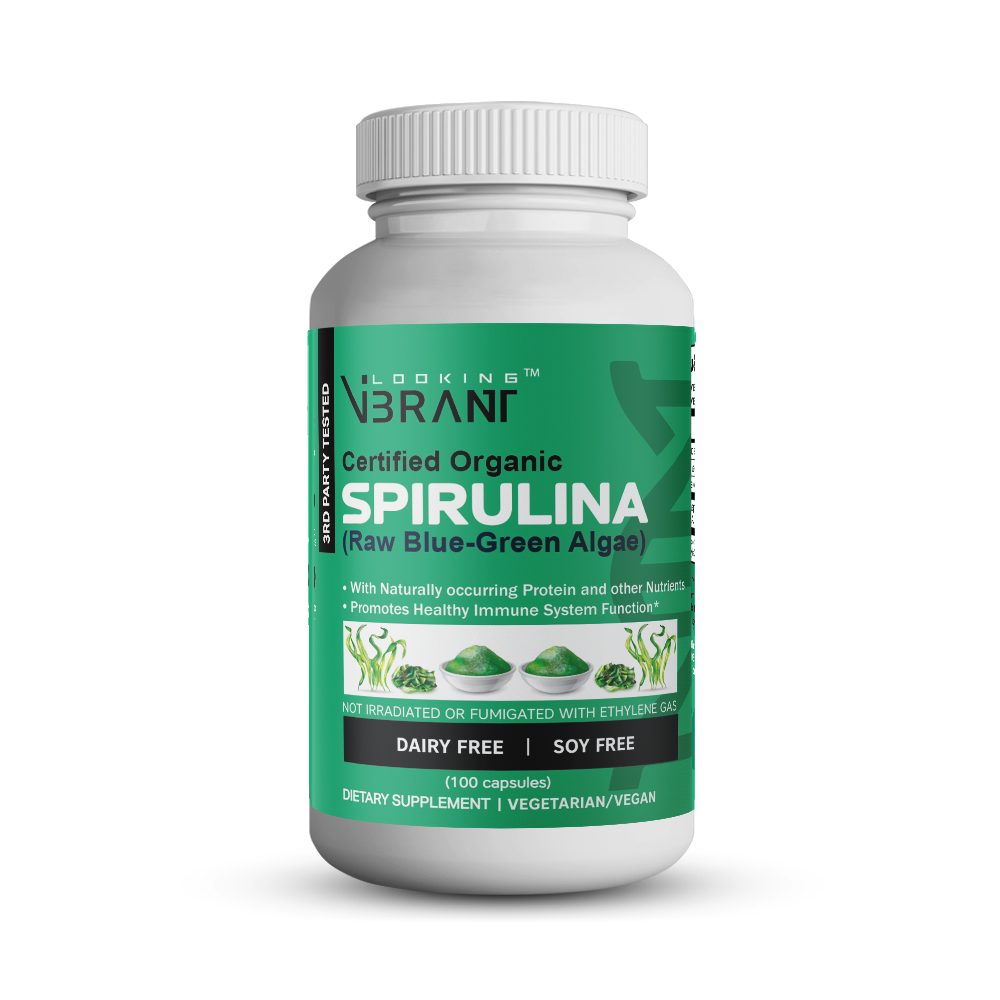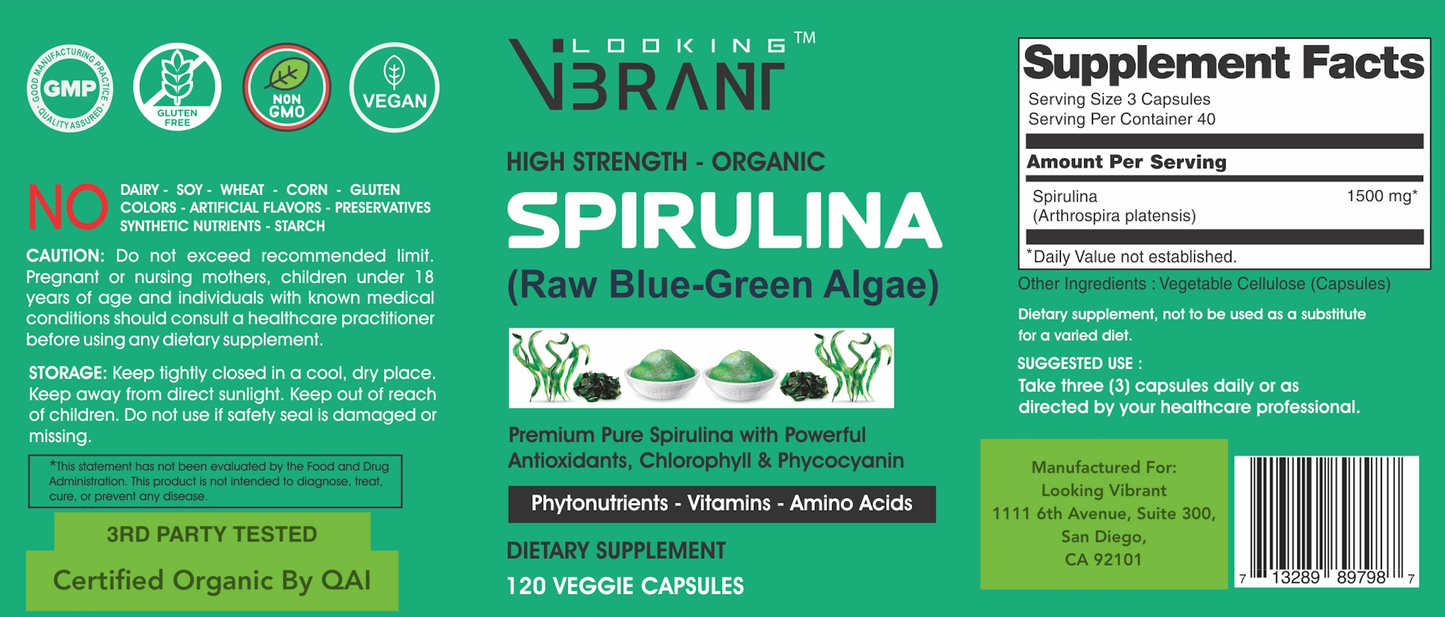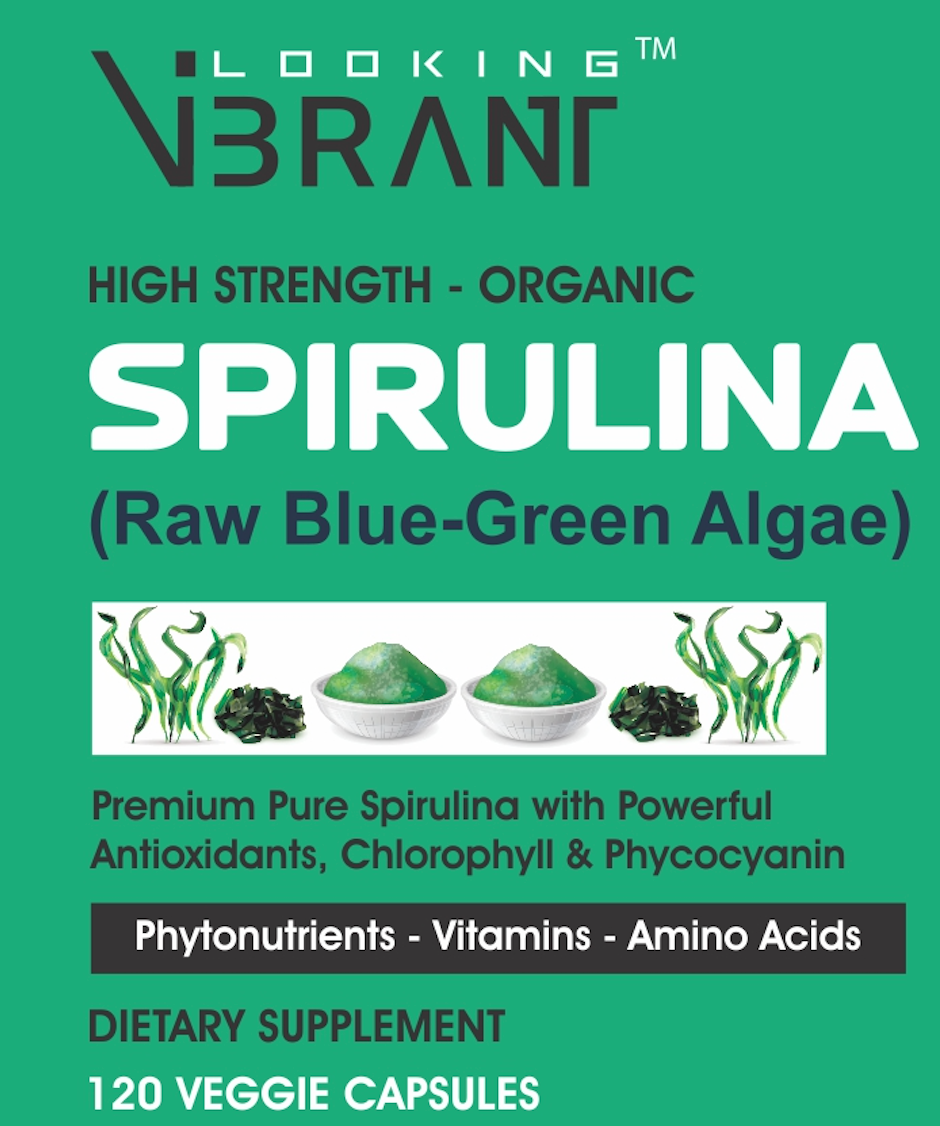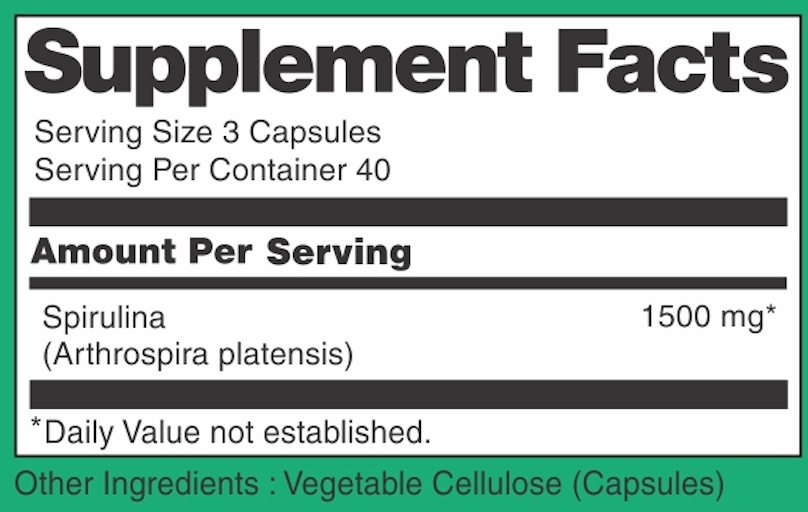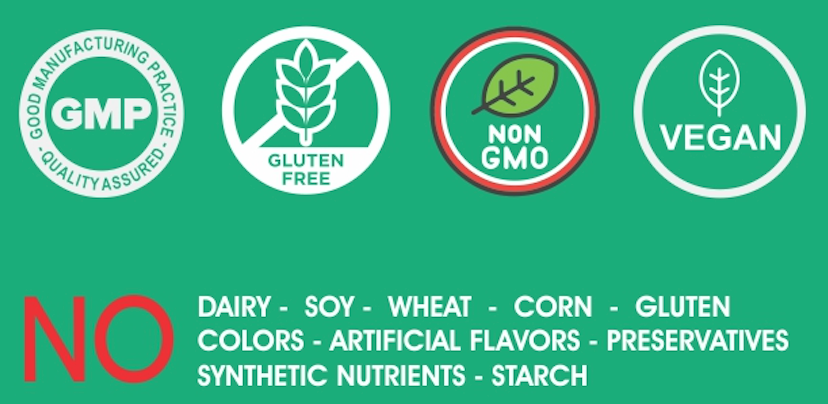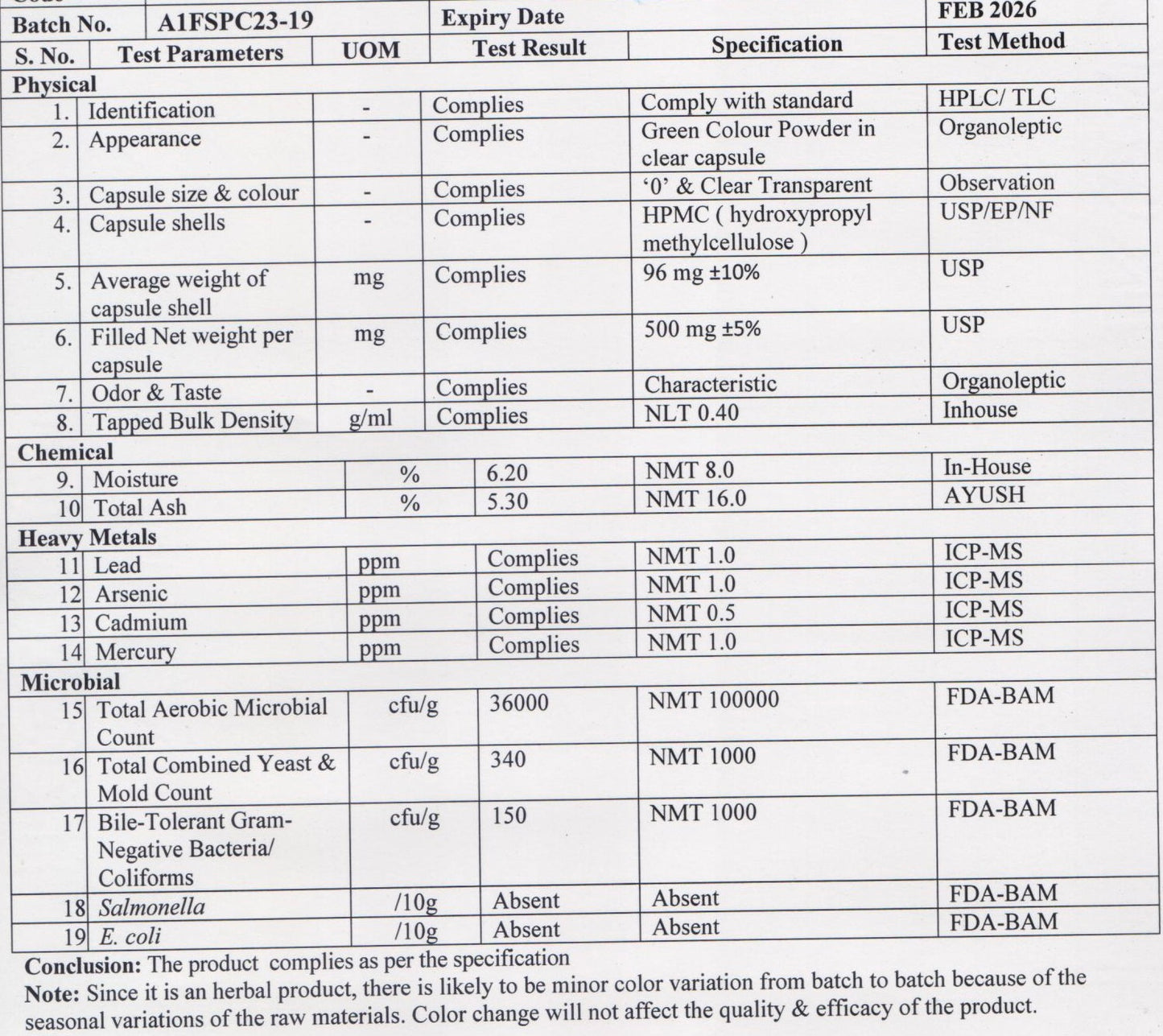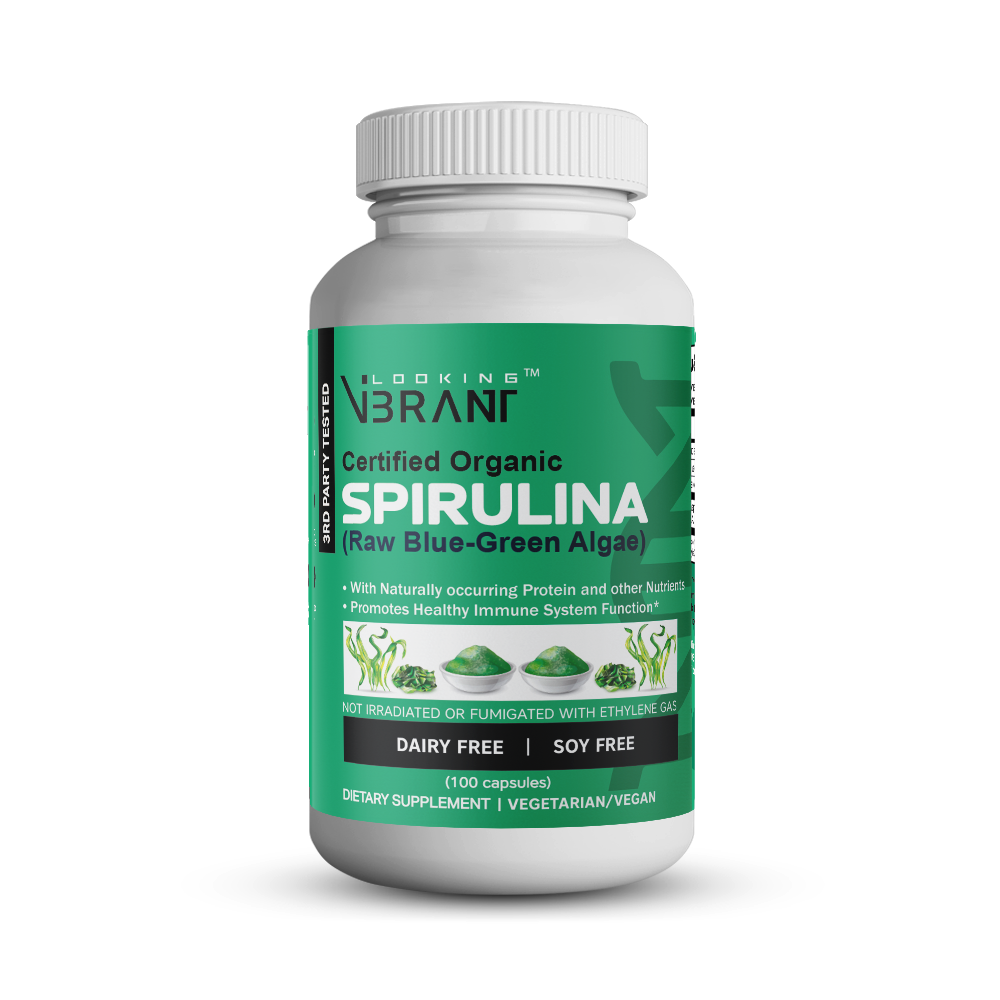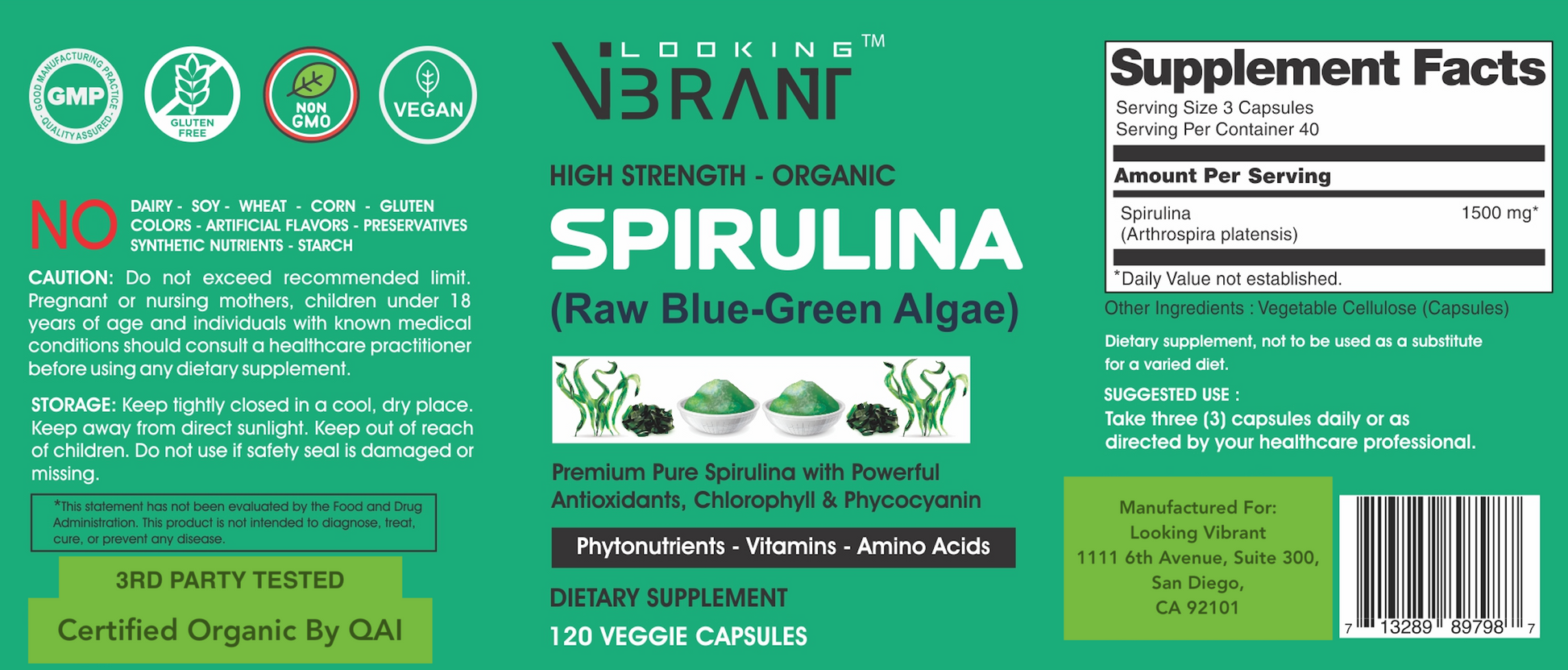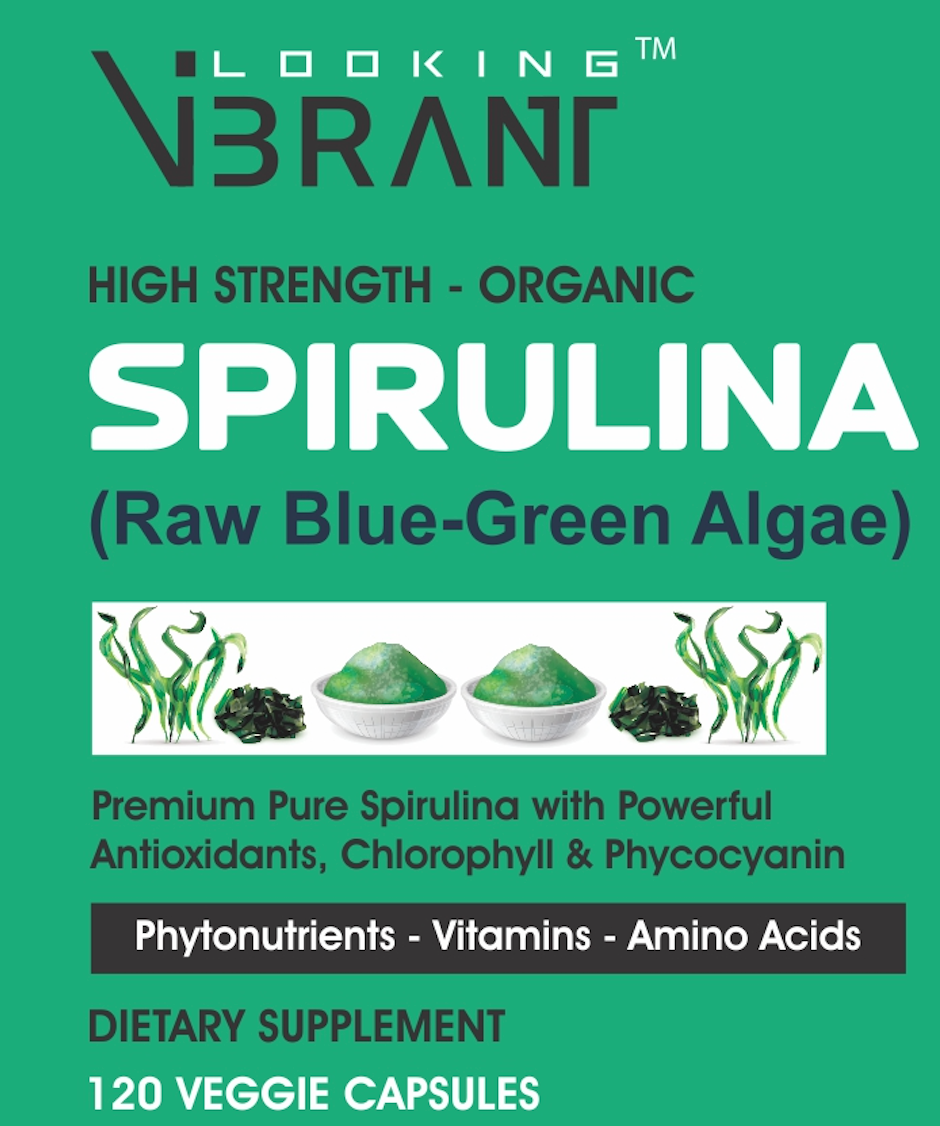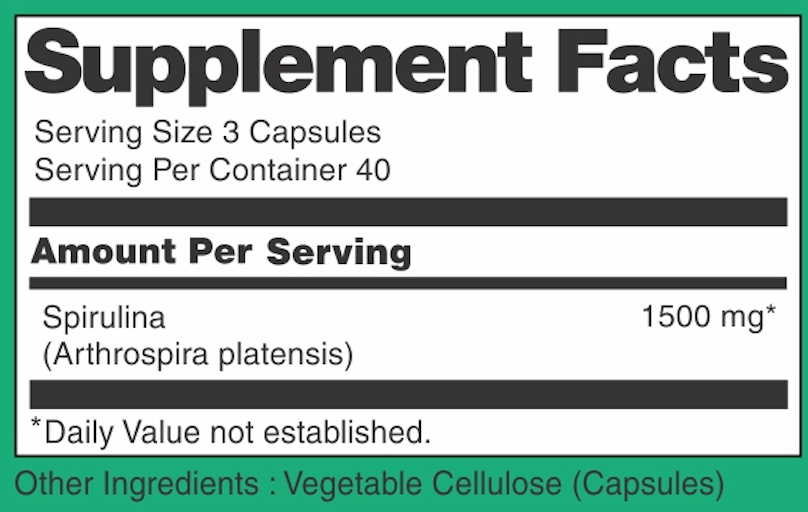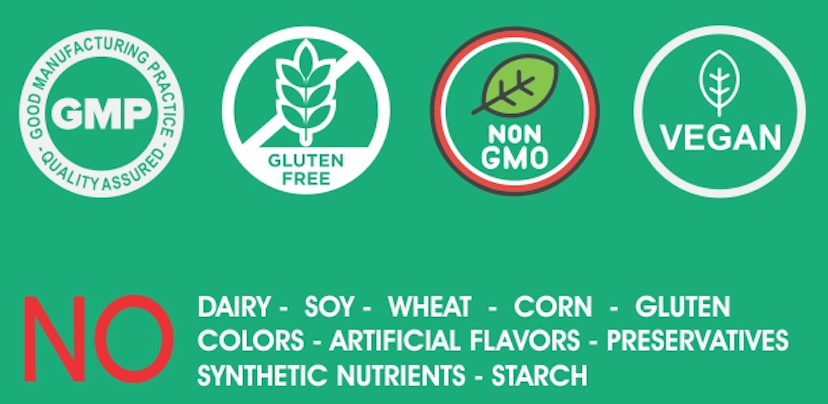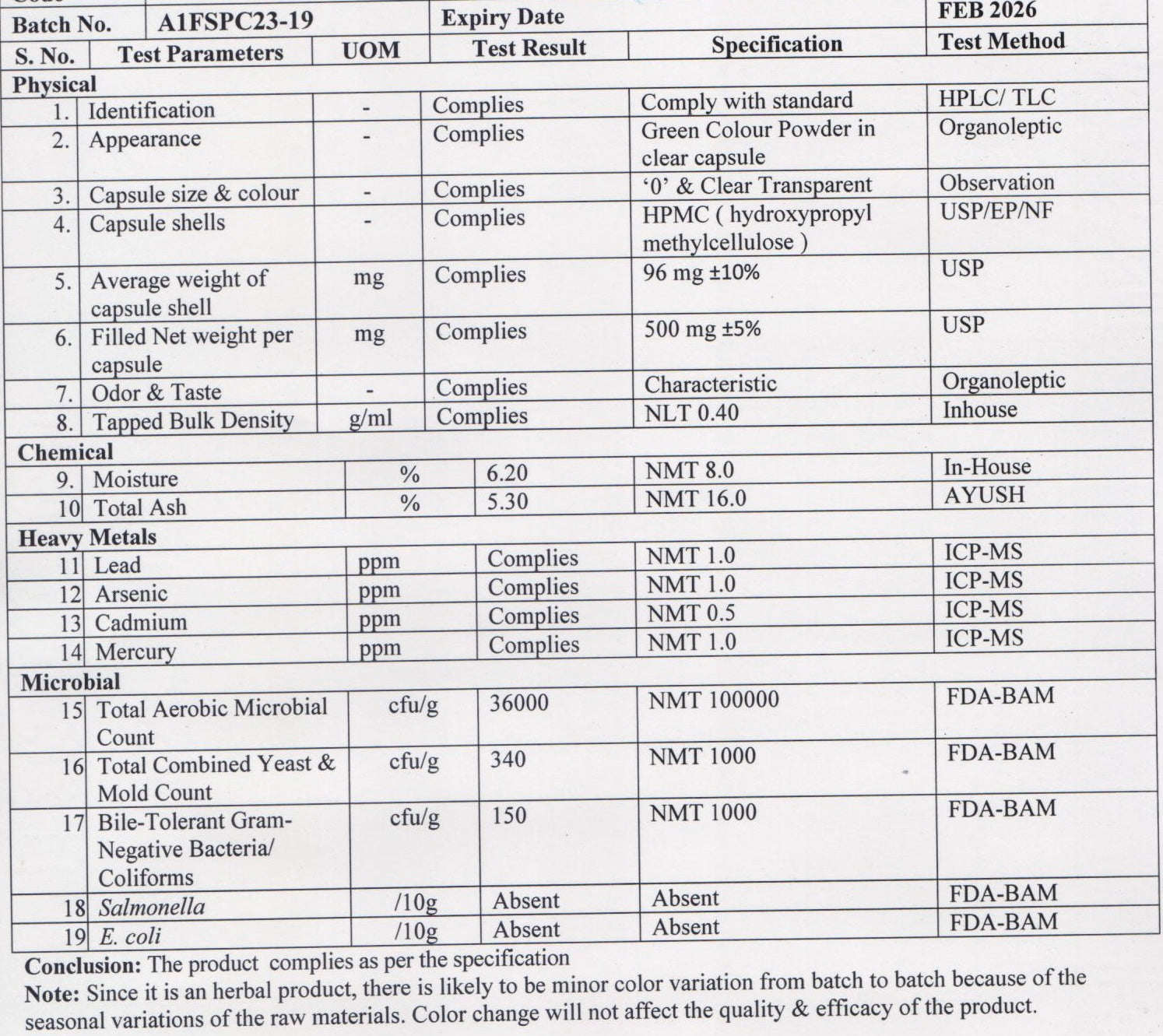Product Benefits
In addition, Spirulina thrives in very warm waters of 32°C to 45°C (approximately 85°F to 112°F) and has even survived in temperatures of 60°C (140°F) It has photosynthetic activity and therefore is an autotroph. Being gram-negative it has a complex cell wall composed of peptidoglycan. The helical shape of the trichome is characteristic of the genus.5
Dr. Eric Berg briefly explains why Astronauts use Spirulina.
Spirulina is approximately 65 to 71 percent protein, depending on growing conditions.
Unlike poultry or meat that needs hours of digestion...SPIRULINA (Certified Organic) proteins are biologically active pure Amio Acid complete which means they provide all.
Here's Catherine, a researcher briefly answering Dr. Gundery's question regarding the health benefits of Spirulina.
Dr. Jed Fahey Professor | Cited by 18799 | of Johns Hopkins University, MD (JHU)
Dr. Fahey is a nutritional biochemist with broad training and extensive background in plant physiology, human nutrition, photochemistry, and nutritional biochemistry. (Here's a brief video clip)
From Organic Tank to Your Table
While we cannot speak for the entire spirulina industry, the SPIRULINA (Certified Organic) growing method is all-natural. We use no artificial chemicals, solvents, or pesticides. We grow the spirulina in pristine, freshwater tanks, harvest it, dry it, and press it into tablets. Our spirulina is tested 4 times for purity (and is consistently 100% pure) before you receive it. How to Know if Your Spirulina is High-Quality
Not all spirulina is created equal!
1. Where is this spirulina grown?
Thailand, India, and Taiwan have very highly established/educated algae growers, a well-regulated algae industry.
Countries like China and (to a lesser extent) Korea are large exporters of cheap spirulina; however, their highly polluted environments and lack of regulations make their algae a dangerous choice for human consumption. Japan also has an algae industry, but because of radioactivity concerns and studies showing higher levels of heavy metals, it is another exporter to best avoid.
A strong immune system needs immune-building nutrients like amino acids, chlorophyll, phytonutrients, vitamins A and B, minerals like iron and zinc. ALL of these immune-building nutrients and forty more are found in algae - the most nutrient-dense food in the world (according to NASA). That’s why spirulina algae tablets (and chlorella algae) tablets are a safe, easy source of immune support nutrition.
Algae is NOT a supplement – it is a food crop that has been grown in Asia for over fifty years. You can purchase spirulina algae tablets almost anywhere but you need to be careful which brand you purchase because none are grown as safely or carefully as SPIRULINA (Certified Organic).
It has been stated by NASA that the nutritional value of 1000 kg of fruits and vegetables equals one kg of spirulina. Therefore in long-term space missions, NASA (CELSS) and the European Space Agency (MELISSA) proposed that spirulina serves as a major source of food and nutrition.1,2 The United Nations has hailed spirulina as the possible “best food for the future” in its world conference held in 1974. Spirulina can be harvested by simple methods and can be processed into a variety of final forms such as powders, tablets, flakes, syrups, etc.3 Some of the early health effects of spirulina were in its role in diabetes management and its significant plasma triglycerides reduction effects (total- and LDL-cholesterol), blood pressure lowering, improving the antioxidant status, as well as inflammatory effects. 4 Recent reports note the importance of spirulina for its immunomodulatory, anti-fatigue, and radio-protective effects. Spirulina is commonly used in Asian cuisine. In America, spirulina is sold in health food stores as a powder or tablet. In Russia, it has been approved to treat symptoms of radiation sickness, because the carotenoids it contains absorb radiation.5 Spirulina also is reported to slow neurological damage in aging animals, and also to lessen the damage caused by stroke.6 Studies also show that spirulina can prevent the release of histamines, treating allergy symptoms.7 The melanosis and keratosis improving capacity of Spirulina have also been demonstrated.8
Since algae is a food, not a supplement, your body absorbs all of its nutrients quickly and easily (unlike supplements which are made in manufacturing plants from extracts that your body doesn’t recognize or absorb well). Algae is so nutrient-dense and has so much protein in it, in 1974 the United Nations declared spirulina algae the answer to world hunger and NASA says 1 gram of algae has 1,000 times more nutrition than any other fruit or vegetable. SPIRULINA (Certified Organic) algae tablets are so nutrient-dense, that one bottle of 100 tablets contains the same nutrient value as 55.1 pounds of fruits or vegetables. That’s why we refer to our algae tablets as “Efficient Nutrient.”
